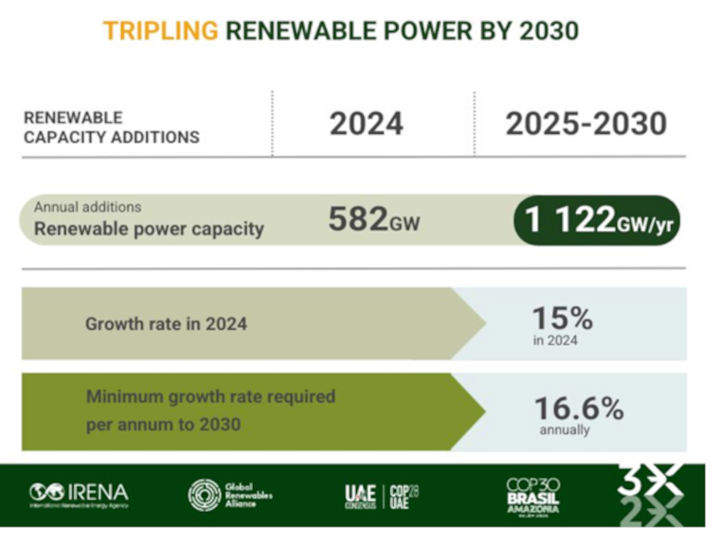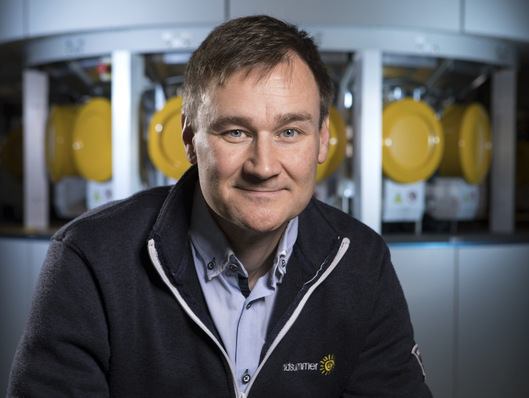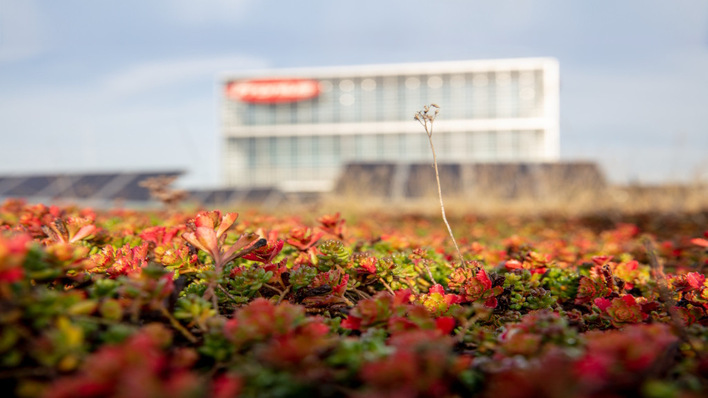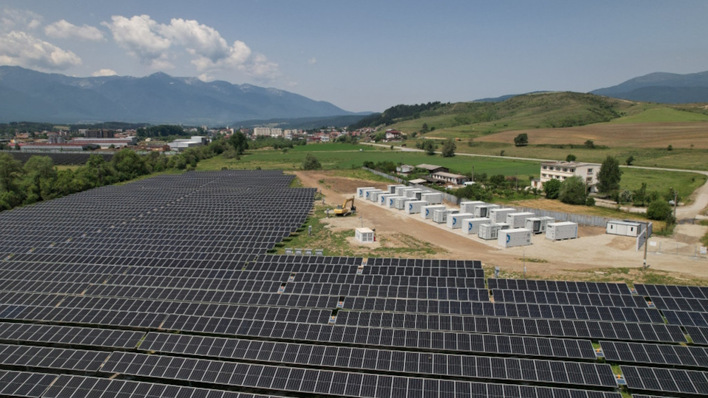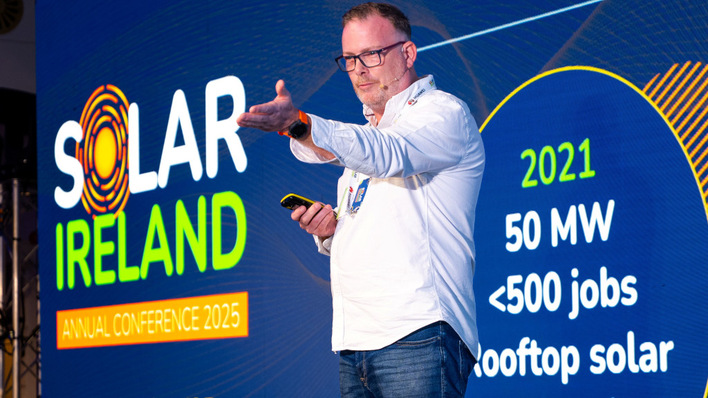Despite record progress last year, the world is still falling short of its renewable energy and efficiency targets, according to a new report published by the International Renewable Energy Agency (IRENA), the COP30 Brazilian Presidency and the Global Renewables Alliance (GRA) at a high-level pre-COP30 event in Brasília.
In 2024, global renewable capacity additions reached an unprecedented 582 GW. Yet this is still below the COP28 UAE Consensus target to triple renewables to 11.2 TW by 2030. Meeting that goal now demands 1,122 GW of new capacity to be added each year from 2025 onwards, with annual growth needing to accelerate to 16.6 percent throughout the decade, according to the second official tracking report on the landmark energy goals set by the UAE Consensus at COP28.
IRENA: Vast majority of new renewable projects cheaper than fossil fuels
The progress report, Delivering on the UAE Consensus: Tracking progress toward tripling renewable energy capacity and doubling energy efficiency by 2030, also emphasises that energy efficiency remains a critical challenge. Global energy intensity improved by just one percent in 2024, well below the four percent annual gains needed to meet the UAE Consensus goal and keep the 1.5°C target within reach.
Urgent action needed
The report calls for urgent action to:
• integrate renewable targets into national climate plans (NDC 3.0) ahead of COP30 in Belém;
• double collective NDC ambition to align with the global renewables goal; and
• scale investment in renewables to at least USD 1.4 trillion per year in 2025–2030, more than doubling the USD 624 billion invested in 2024.
In response to the report’s findings, United Nations Secretary-General António Guterres stated: “The clean energy revolution is unstoppable. Renewables are deployed faster and cheaper than fossil fuels, driving growth, jobs and affordable power. But the window to keep the 1.5°C limit within reach is rapidly closing. We must step up, scale up and speed up the just energy transition – for everyone, everywhere.”
SolarPower Europe pushes for comprehensive resilience plan
Francesco La Camera, Director-General of IRENA: “The world has broken renewable capacity records, but records alone will not keep 1.5°C alive. Renewables are not just the most cost-effective climate solution; they are the biggest economic opportunity of our time. Every dollar invested brings growth, jobs and energy security.”
The report recommends that the world’s major advanced and emerging economies take the lead. G20 nations are projected to account for more than 80 percent of global renewables by 2030, with the wealthiest developed economies of the G7 expected to take a leadership role by increasing their share to around 20 percent of global capacity within this decade.
Climate finance and strategic finance necessary
Major global economies must also deliver on climate finance, meeting the USD 300 billion annual floor of the new collective quantified goal (NCQG) and scaling up towards the aspirational USD 1.3 trillion confirmed at COP29 in Azerbaijan.
Beyond renewables, the report stresses the urgent need for investment in grids, supply chains and clean-tech manufacturing for solar, wind, batteries and hydrogen.
Nairobi to host expanded Intersolar Africa 2026
While renewable energy investments grew by seven percent in 2024, actual disbursements remain well below the levels needed to build robust project pipelines and speed up construction. For supply chains, fair and transparent trade practices must be ensured for critical renewable energy technologies, and international cooperation is essential to safeguard trade corridors for key materials and components.
Strategic investment in modernising and expanding electricity grids is essential for integrating new capacity and strengthening energy security. From now until 2030, an estimated USD 670 billion per year will need to be directed towards grids, with additional investment required to rapidly scale up energy storage solutions, support renewable integration and safeguard grid stability. (hcn)


